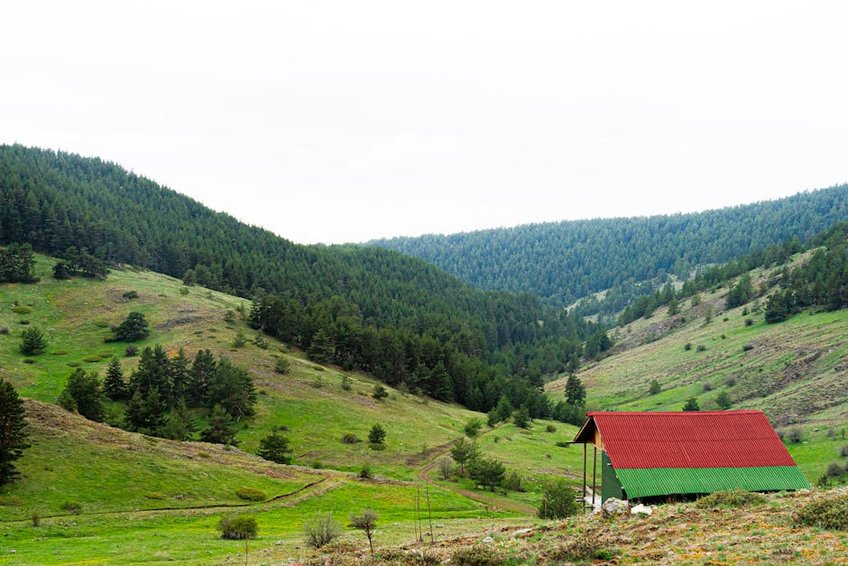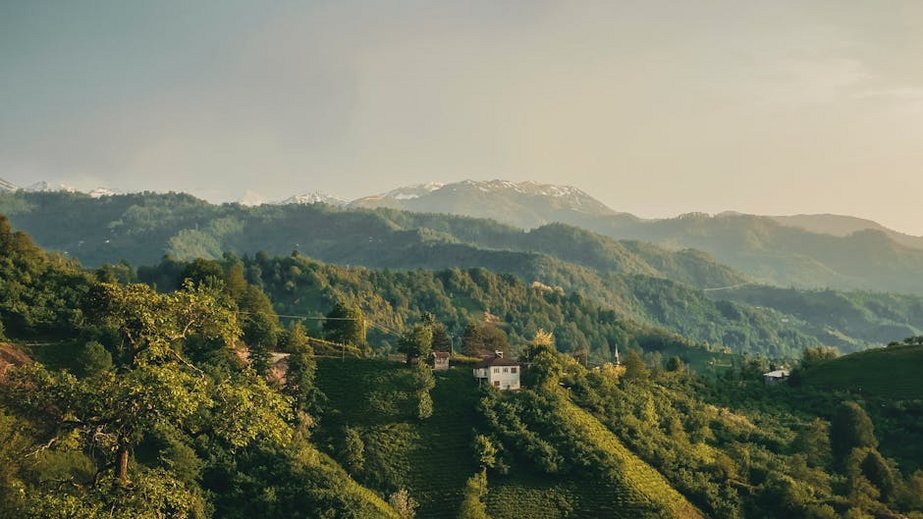Ecotourism Villages in Turkey
Turkey offers some of the most incredible ecotourism villages you’ll find anywhere in Europe and Asia, blending traditional lifestyles with breathtaking natural landscapes. These sustainable destinations provide authentic experiences far from mass tourism, allowing you to connect with local communities while preserving cultural heritage and environmental conservation. Whether you’re seeking mountain retreats, coastal hideaways, or agricultural experiences, Turkey’s ecotourism villages deliver unforgettable encounters with nature and tradition. The growing network of these sustainable destinations represents Turkey’s commitment to responsible tourism that benefits both travelers and local communities. You’ll discover that each village maintains unique characteristics while sharing common values of environmental protection and cultural preservation.
Ecotourism Villages in Turkey Essential Information
Understanding what makes Turkish ecotourism villages special helps you appreciate their significance and plan your visit more effectively. These communities typically feature traditional architecture, organic farming practices, and activities that minimize environmental impact while maximizing cultural exchange. You’ll notice that many villages participate in certification programs ensuring they meet specific sustainability standards. The concept has gained tremendous momentum in Turkey over the past decade, with both government and private initiatives supporting rural communities in developing eco-friendly tourism models. What makes these destinations particularly appealing is their ability to offer genuine hospitality while protecting natural resources for future generations.
What Defines Turkish Ecotourism Villages
- Traditional stone or wood houses using local materials and construction techniques
- Organic farming and locally sourced meals prepared with seasonal ingredients
- Community-based tourism where residents directly benefit from visitor spending
- Environmental conservation practices including waste management and energy efficiency
- Cultural preservation through handicrafts, music, and traditional activities
- Budget options: $40-60 per night including meals and basic activities
- Mid-range experiences: $80-120 per night with guided activities and better amenities
- Luxury eco-retreats: $150-300 per night featuring premium services and exclusive access
- Turkish Travel Agencies Association – Sustainable Tourism
- Turkish Ecotourism Association Official Site
Key Characteristics and Standards
Turkish ecotourism villages maintain specific standards that differentiate them from regular rural accommodations. You’ll find they typically limit guest numbers to prevent overcrowding, use renewable energy sources where possible, and implement water conservation systems. Many villages offer educational programs about local ecosystems and cultural traditions, creating meaningful interactions between visitors and hosts. The accommodations range from restored traditional houses to eco-lodges built with sustainable materials, all designed to blend seamlessly with the natural environment. These establishments prioritize hiring local staff and sourcing products from nearby producers, ensuring tourism revenue circulates within the community.

Ecotourism Villages in Turkey Planning Your Trip
Planning your visit to Turkey’s ecotourism villages requires consideration of seasons, transportation options, and the type of experience you seek. The country’s diverse geography means climate varies significantly between coastal, mountain, and plateau villages. You’ll want to research each village’s unique offerings since some specialize in agricultural experiences while others focus on outdoor activities or cultural immersion. Booking directly with villages often yields better rates and ensures more money goes to the local community. Many villages have limited capacity, so advance reservations are essential, particularly during peak seasons. You should also consider that some remote villages may have limited internet connectivity, allowing for真正的digital detox experiences.
Best Time to Visit Ecotourism Villages
The ideal time for visiting ecotourism villages in Turkey depends on your preferred activities and tolerance for weather conditions. Spring (April-June) offers perfect conditions with wildflowers blooming, comfortable temperatures, and abundant wildlife sightings. Autumn (September-November) provides spectacular foliage colors, harvest activities, and fewer crowds. Summer months can be hot but work well for high-altitude mountain villages, while winter offers cozy fireplace experiences and possible snow activities. Coastal villages are best visited May-October, while mountain destinations offer year-round appeal with different seasonal attractions. You’ll find that each season brings unique agricultural activities and cultural festivals worth experiencing.
Budget Planning and Costs
Essential Preparation Checklist
Preparing for your ecotourism village stay requires some specific considerations beyond typical vacation planning. You should pack comfortable walking shoes, layered clothing for changing weather conditions, and reusable water bottles to minimize plastic waste. Bring cash since remote villages may not accept credit cards, and download offline maps as internet connectivity can be unreliable. Research basic Turkish phrases since English proficiency varies in rural areas, though most tourism staff speak adequate English. Check if your village provides toiletries or if you need to bring eco-friendly products, and always inform hosts about dietary restrictions in advance. Don’t forget to pack respect for local customs and openness to new experiences.
Ecotourism Villages in Turkey Top Attractions and Activities
Turkey’s ecotourism villages offer diverse attractions that combine natural beauty, cultural experiences, and active adventures. You’ll find that each region specializes in different activities based on local resources and traditions. The Black Sea villages excel in trekking through lush forests and tea plantation tours, while Mediterranean villages offer citrus harvest experiences and boat trips to secluded coves. Central Anatolian villages provide opportunities for pottery workshops and underground city explorations, whereas Aegean villages focus on olive oil production and ancient site visits. The variety ensures that regardless of your interests, you’ll find villages offering exactly the experiences you seek while maintaining sustainable tourism practices.
Must-See Highlights
Certain ecotourism villages stand out for their exceptional offerings and well-developed sustainable tourism models. You shouldn’t miss Uzungöl in Trabzon with its stunning lake surrounded by mountains and traditional wooden houses. The village of Şirince near Izmir offers wonderful wine tasting experiences in restored Greek houses amid lush vineyards. For mountain enthusiasts, Ayder Plateau provides spectacular hiking trails and traditional Laz culture experiences. The Cappadocia region features several cave villages where you can stay in authentic rock-cut accommodations while exploring the unique landscape. Each of these destinations has mastered the balance between welcoming visitors and preserving their natural and cultural heritage.
Hidden Gems and Local Favorites
Beyond the well-known ecotourism villages, Turkey hides numerous lesser-known gems that offer equally rewarding experiences with fewer visitors. You might discover Adatepe near Kaz Mountains, where ancient olive trees and stone houses create a magical atmosphere. The village of Gümüşlük on the Bodrum peninsula offers wonderful seafood restaurants and artistic communities in a protected bay area. For truly remote experiences, consider the Kaçkar Mountains villages where shepherds still practice transhumance traditions. Eastern Anatolia hosts several Armenian heritage villages with incredible stone architecture and traditional crafts. These hidden destinations often provide the most authentic encounters with rural Turkish life and untouched natural environments.
Ecotourism Villages in Turkey Practical Travel Information
Navigating practical aspects of visiting Turkey’s ecotourism villages ensures a smooth and enjoyable experience. You’ll find that transportation options vary significantly depending on the village’s location, with some easily accessible by public transport while others require private vehicles. Accommodation standards range from basic village houses to luxurious eco-lodges, though all prioritize environmental sustainability. Most villages offer full-board options featuring locally sourced organic meals, which simplifies dining arrangements. You should be aware that many ecotourism villages participate in community-based tourism models where activities are led by local residents, providing authentic experiences and direct economic benefits to the community.
| Category | Options/Features | Price Range (USD) |
|---|---|---|
| Transportation | Local buses, private transfers, rental cars | $20-100 depending on distance |
| Accommodation | Traditional houses, eco-lodges, family pensions | $40-300 per night |
| Meals | Local organic cuisine, home-cooked meals | Included or $15-30 daily |
| Activities | Guided tours, workshops, cultural events | $10-50 per activity |


